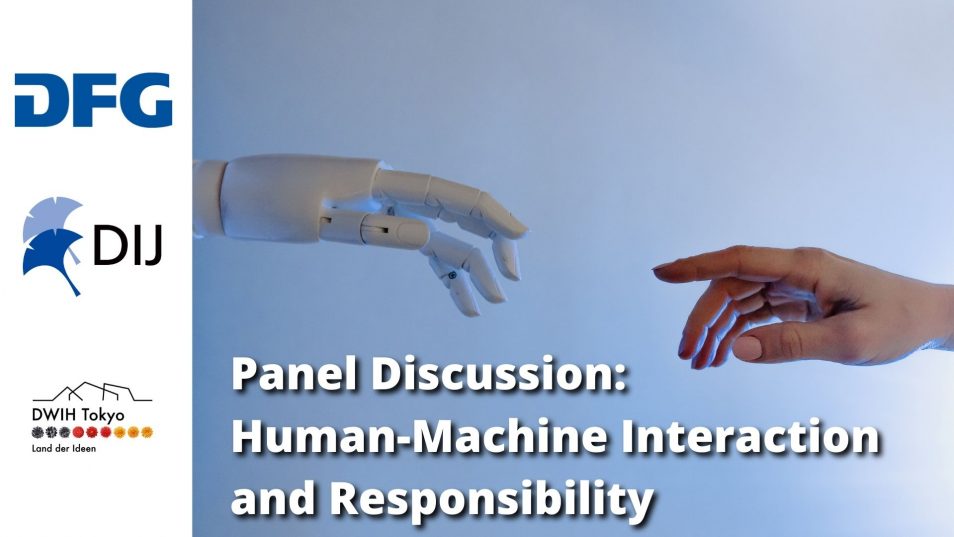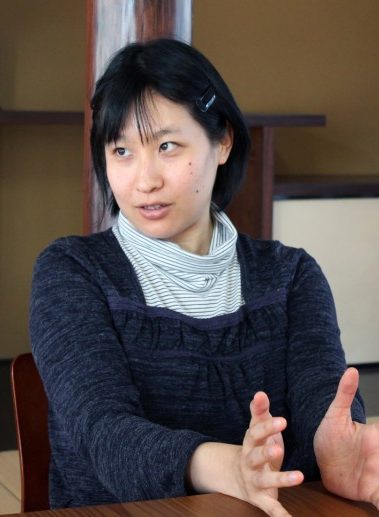Human-Machine Interaction and Responsibility

Rapid advancements in new technologies, such as robots and AI, brought about new social practices and realities. These developments come with manifold expectations and concerns, which mirror our understanding of what it means to be human. In addition, these new technologies urge us to re-examine our understanding of key concepts such as responsibility and think about the kind of future society in which we would like to live.
Drawing on perspectives from technological development, psychology, philosophy, social sciences, literature and art studies, we will discuss with experts questions on psycho-social aspects of human-machine interaction and their consequences, as well as ethical, legal, and socio-political implications. One important issue will be people’s rights and responsibilities when collaborating with machines and AI: Who will be credited for achievements, and who will be held responsible for tragic accidents? Furthermore, how does responsibility depend on the context and type of interaction between humans and machines? How should robots or AI be designed to be beneficial for society? Finally, what could a concept of co-responsibility look like?
Event report
You can read the event report “Human-Machine Interaction and Responsibility” here:
https://www.dwih-tokyo.org/de/2023/05/18/human-machine-interaction-and-responsibility/
Informationen zur Veranstaltung
27. März 2023, 15:00 bis 18:00 Uhr
Deutsches Institut für Japanstudien (DIJ, German Institute for Japanese Studies) Kioizaka Bldg. 2F, 7-1 Kioicho, Chiyoda-ku, Tokyo
Veranstalter: DFG (German Research Foundation), DIJ (German Institute for Japanese Studies), DWIH Tokyo (German Centre for Research and Innovation Tokyo)
Time: 15:00-18:00 (JST)
Language: English
Entry fee: Not required
Registration is required. Please register through the link above. Registration will close automatically as soon as the maximum capacity of 60 participants is reached.
【Program】
15:00 Doors open
15:15 Opening greetings by Dr. Franz Waldenberger, Director of the DIJ and Dr. Laura Blecken, Head of Programs of the DWIH Tokyo / Deputy Director of the DAAD Tokyo
15:30 Short presentations by panelists
16:30 Coffee Break
17:00 Panel Discussion
18:00 End
【Speakers】
 Dr. Celia Spoden, Senior Researcher, German Institute for Japanese Studies (MC)
Dr. Celia Spoden, Senior Researcher, German Institute for Japanese Studies (MC)
 Dr. Eva Buddeberg, Academic Counsel, Institute of Political Science, Faculty of Social Sciences, Goethe-University Frankfurt (panelist)
Dr. Eva Buddeberg, Academic Counsel, Institute of Political Science, Faculty of Social Sciences, Goethe-University Frankfurt (panelist)
Input:
AI and responsibility from a legal, philosophical and socio-political perspective
Dr. Eva Buddeberg will present the DFG network on AI and responsibility led by herself and Dr. Fruzsina Molnár-Gábor professor at Heidelberg University. The network discusses problems of attribution of actions in which AI is involved. While in terms of legal theory, the network primarily considers how these issues can be taken into account in legislation and jurisprudence, from a philosophical and socio-political perspective also arises the question of how critical societal co-responsibility can be fulfilled.
DFG-GEPRIS-Artificial intelligence: Who bears responsibility for what damage of an action?
Profile
 Dr. Arisa Ema, Associate Professor, Institute for Future Initiatives, The University of Tokyo / Visiting Researcher, RIKEN Center for Advanced Intelligence Project (panelist)
Dr. Arisa Ema, Associate Professor, Institute for Future Initiatives, The University of Tokyo / Visiting Researcher, RIKEN Center for Advanced Intelligence Project (panelist)
Input:
AI Ethics and Responsibilities for Different Types of Human-Machine Interactions
How should we think about the rights and responsibilities of people when people collaborate with machines to perform tasks, such as automated driving with AI assistance and creative works using generative AI? The concept of responsibility and rights will differ when the machine (AI) performs the task mostly and the human gives final approval, and when the AI is used to assist the human. Discussion of AI and responsibility needs to be contextualized.
 Dr. Friederike Eyssel, Professor, CITEC Center for Cognitive Interaction Technology, Bielefeld University (panelist)
Dr. Friederike Eyssel, Professor, CITEC Center for Cognitive Interaction Technology, Bielefeld University (panelist)
Input:
The importance of user-centered HRI
The input will discuss psycho-social challenges and consequences associated with human-robot interaction and the deployment of social robots in everyday life. The contribution will discuss the importance of a user-centered perspective, highlighting the key role of user attitudes for successful uptake.
 Dr. Jiré Emine Gözen, Professor for Media- and Culturaltheory, Campus Hamburg, University of Europe for Applied Sciences (panelist)
Dr. Jiré Emine Gözen, Professor for Media- and Culturaltheory, Campus Hamburg, University of Europe for Applied Sciences (panelist)
Input:
Art and literature as a method of knowledge production on the risks and potentials of AI and Human Machine Interaction
The manifold questions concerning the risks and potentials of Human Machine Interaction and AI have been reflected in art and literature for decades. In the process, social and scientific discourses are taken up and perpetuated. In their perpetuation, they inform general ideas about what is possible or problematic about these technologies. Implicitly, art and literature thus have an impact on scholarly and public discourse and should therefore be understood and considered as a form of knowledge production of their own.
 Dr. Randy Gomez, Chief Scientist, Honda Research Institute (HRI) (panelist)
Dr. Randy Gomez, Chief Scientist, Honda Research Institute (HRI) (panelist)
Input:
Embodied AI for a Harmonious Society
The advancement of AI and robotics have pushed the adoption of social robots at home, offices and various facilities such as hospitals and nursing homes. Although the field of social robotics has shown progress in developing activities between a robot and human, applications targeting groups and society in general are still lacking. In this forum, we will present a framework of designing social robots to maximize societal impact and share our recent activities in developing intelligent robots as mediators that support connecting people, cultivating better understanding of one another, and fostering good relationships.
The DWIH Tokyo newsletter provides timely information about open calls and events from research and innovation in Germany and Japan: Click here to register for the newsletter in English
